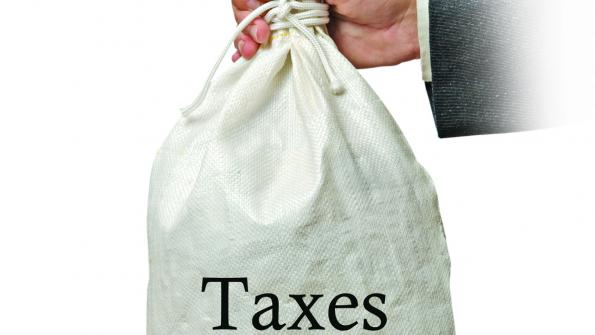Report: States tax poor families more heavily than wealthy ones
Washington state has the most regressive tax system in the country, followed by Florida and South Dakota, according to a new report “Who Pays?,” from the Institute on Taxation and Economic Policy. The report, a distributional analysis of the tax systems in all 50 states, says virtually every state has a regressive tax system that taxes bottom income households at far higher rates than top income households.
On average, state and local governments tax the bottom 20 percent of households by income at double the overall tax rate of the top 1 percent of households. That’s primarily because those governments rely heavily on consumption taxes, such as sales taxes, which weigh more on the poor than the rich. Poor families pay eight times more of their income in these taxes than wealthy families, according to the report, while middle income families pay five times more than the wealthy.
Washington leads the report’s “Terrible Ten,” states where the bottom 20 percent of households pay up to six times as much of their income in taxes as the top 1 percent. In Washington state, the tax rate on the bottom 20 percent of households by income is 16.9 percent, while the tax rate on the top 1 percent of households is 2.8 percent.
Other states with the most regressive tax systems include:
- Florida, tax rate on the bottom 20 percent of households, 13.2 percent; rate on the top 1 percent of households, 2.3 percent
- South Dakota, bottom 20 percent, 11.6 percent; top 1 percent, 2.1 percent
- Illinois, 13.8 percent; 4.9 percent
- Texas, 12.6 percent; 3.2 percent
- Tennessee, 11.2 percent; 2.8 percent
- Arizona, 12.9 percent; 4.7 percent
- Pennsylvania, 12 percent; 4.4 percent
- Indiana, 12.3 percent; 5.4 percent
- Alabama, 10.2 percent; 3.8 percent





















Why don’t you just say you
Why don’t you just say you hate the rich and are jealous of them? That way you are up front with what you are really thinking.
The article seems to be
The article seems to be reporting an unfair taxing structure, but what it is actually stating is that people who make less money spend a larger percentage of their income on consumables (or other taxible merchandise) than do persons making more money. That’s common sense mathematics, not unfairness. Of course I will spend a lower percentage of my check on items I need than someone making half what I do. That’s the nature of working to get ahead. The only way to level that playing field is to make items cost more or be taxed higher the more money you make. It’s a ludicrous concept, and unfairly lays blame to the rich (a group in which I am surely not included).
If a person can better themselves (that means they have a little more left after necessities than they did before), then so be it. They earned it, they should have it. What do we work for, if not this? In an honest evaluation, it would also be stated what TOTAL tax the wealthy pay, including all items purchased, business taxes, income taxes, and property/school taxes. You would then see the tables turned and the top percentages paying wildly more than the lower.
This study is simply another case of playing with numbers to villify the successful while making the less wealthy victims of the rich.
The Government should try to
The Government should try to reduce the tax for the food items and vehicles. The common people can never afford this tax burden. I made sure to bookmark your website so I can come back later. Keep up the good writing.